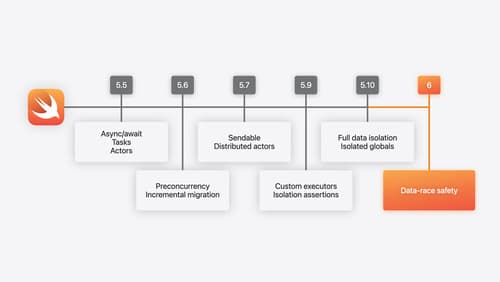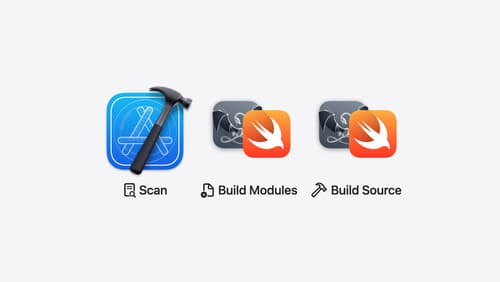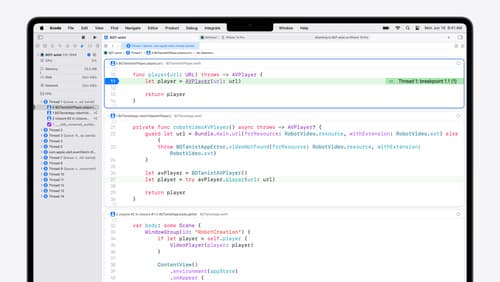How lldb works with static Swift modules?
Asked on 2024-12-25
1 search
LLDB works with static Swift modules by utilizing explicitly built modules, which are a new feature in Xcode 16. This approach allows LLDB to reuse the build outputs when evaluating expressions, leading to faster debugging. Previously, when using implicitly built modules, the debugger had to build its own version of all module files, which could result in long pauses when first printing variables. With explicitly built modules, these implicit steps are turned into explicit build steps, allowing for parallel builds and more predictable and reliable debugging. This means that the debugger can now share binary modules with the build, resulting in a faster debugging experience.
For more details, you can refer to the session Demystify explicitly built modules (08:37) and What’s new in Xcode 16 (08:30).

What’s new in Swift
Join us for an update on Swift. We’ll briefly go through a history of Swift over the past decade, and show you how the community has grown through workgroups, expanded the package ecosystem, and increased platform support. We’ll introduce you to a new language mode that achieves data-race safety by default, and a language subset that lets you run Swift on highly constrained systems. We’ll also explore some language updates including noncopyable types, typed throws, and improved C++ interoperability.

Demystify explicitly built modules
Explore how builds are changing in Xcode 16 with explicitly built modules. Discover how modules are used to build your code, how explicitly built modules improve transparency in compilation tasks, and how you can optimize your build by sharing modules across targets.

What’s new in Xcode 16
Discover the latest productivity and performance improvements in Xcode 16. Learn about enhancements to code completion, diagnostics, and Xcode Previews. Find out more about updates in builds and explore improvements in debugging and Instruments.
